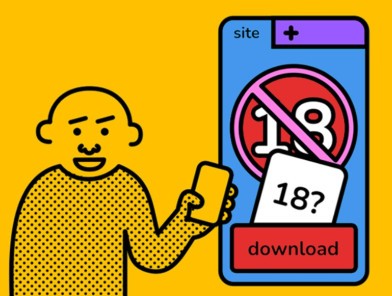Escorting can look glamorous from the outside the fancy dinners, hotel suites, and intriguing conversations. But anyone in this line of work knows that behind the surface, it’s demanding. It’s not just about physical work; it’s emotional, social, and mental labor too. Being “on” all the time, maintaining energy, and creating connection can take its toll.
Burnout in this field is real. It sneaks up quietly, and many escorts don’t notice it until it hits hard. But recognizing the signs early and allowing yourself space to rest can make a huge difference not just for your health, but for your career and personal life.
1. The Subtle Signs of Burnout
Burnout rarely happens overnight. It creeps in quietly until suddenly, everything feels harder than it should. Some common signs include:
-
Dread for bookings — even clients you normally enjoy start to feel like a chore.
-
Emotional exhaustion — feeling flat or disconnected after dates that used to energize you.
-
Physical fatigue — being drained even after rest or a day off.
-
Neglecting self-care — skipping meals, forgetting hygiene, or letting exercise slide.
-
Irritability and impatience — small things trigger frustration, and it’s hard to stay composed.
These aren’t signs of weakness; they’re signals that your energy reserves need attention. Paying attention early is key the sooner you notice, the easier it is to recover.
2. Why Burnout Hits Escorts Harder
Escort work combines performance, emotional labor, and personal boundaries. You’re not just present physically; you’re actively creating comfort, connection, and a positive experience for clients. That takes energy, empathy, and constant attention.
Throw in irregular schedules, late nights, travel, or clients with high expectations, and it’s easy to reach a tipping point. Emotional labor is invisible but draining sometimes more than any physical task. Recognizing that it’s part of the job, not a personal flaw, helps you treat burnout seriously instead of brushing it off.
3. Taking Breaks Without Guilt
One of the hardest lessons in this profession is learning to rest without feeling guilty. Many escorts push themselves because they fear losing clients or income. But working through exhaustion doesn’t make you stronger it diminishes your presence and energy, which are your real tools.
Breaks don’t have to be dramatic. Even a day or two offline, away from profiles and appointments, can reset your energy. Take time to:
-
Sleep in without alarms.
-
Disconnect from social media and work messages.
-
Nourish your body with wholesome meals.
-
Spend time with friends or loved ones who aren’t involved in your work.
-
Engage in hobbies that bring pure joy, not performance.
Allowing yourself rest is an act of professionalism it ensures you stay sharp, authentic, and confident in your interactions.
4. Resetting Boundaries
Burnout often signals that your boundaries are off. Consider:
-
Are you saying yes to too many clients or last-minute requests?
-
Are some clients draining your energy rather than energizing you?
-
Do you have clear work hours, or does your work bleed into every moment?
It’s okay to be selective. Saying no isn’t rude it’s self-respect. Protecting your time and energy ensures that when you do say yes, you’re fully present and engaged.
Boundaries also include emotional limits. You don’t need to share every detail of your personal life, and you don’t need to be “on” for every interaction. Protecting your mental space is a form of empowerment.
5. Daily Habits to Prevent Burnout
Small routines can make a huge difference over time. Consider:
-
Morning grounding rituals — even 5 minutes of stretching or meditation before the day starts.
-
Reflection after dates — journaling for a few minutes to release emotional energy.
-
Hydration and nutrition — eating well and drinking water consistently.
-
Mini mental breaks — listening to music, reading, or taking a short walk between appointments.
-
Scheduling rest days — treating them as non-negotiable appointments with yourself.
Consistency is the secret. Even small habits can maintain balance, reduce stress, and prevent burnout from escalating.
6. Recognizing Emotional Labor
A lot of people underestimate how much energy it takes to maintain connection and emotional intimacy, even in a professional setting. You’re reading cues, listening actively, making clients feel safe and valued, and often carrying your own personal emotions at the same time.
It’s easy to confuse being “tired” with “not enjoying your work anymore.” But the distinction matters. Emotional fatigue doesn’t mean you’ve lost your passion it means your brain and heart need a break to recharge.
7. When to Take a Longer Break
Sometimes a short rest isn’t enough. If you notice:
-
Persistent exhaustion for weeks at a time
-
Emotional detachment from work and personal life
-
Irritability, anxiety, or low mood that doesn’t improve
-
Physical symptoms like headaches, stomach issues, or insomnia
…then it’s time for a longer break. It could be a week, two weeks, or even a month, depending on your schedule and resources. Consider using this time to reflect, recharge, and plan your next steps carefully.
Rest as a Professional Power Move
Burnout isn’t failure it’s feedback. Escorting isn’t a sprint; it’s a balance between giving and recharging. Taking breaks and protecting your energy is part of being a professional.
When you notice the signs early, set clear boundaries, and honor your need for rest, you come back sharper, more confident, and more present than ever. Your energy is your currency guard it, nurture it, and never feel guilty for taking the time you need to thrive.













